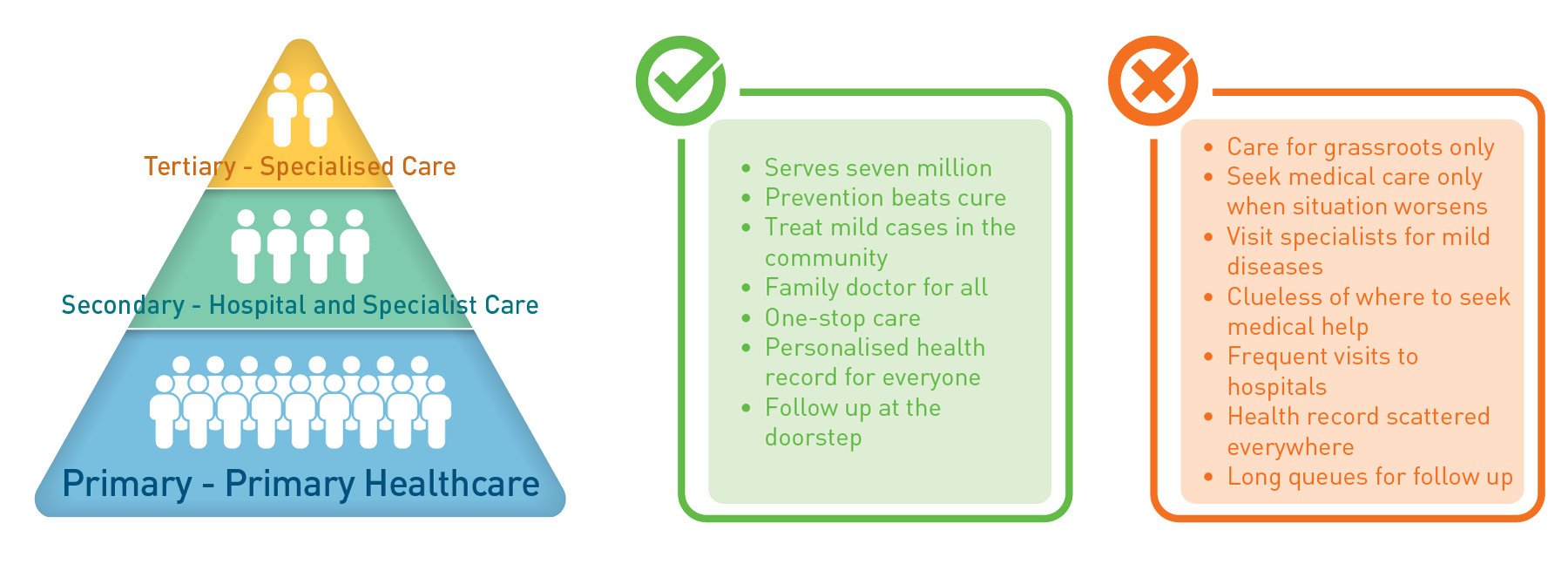Hong Kong has an effective and efficient public and private healthcare system of very high professional standard that delivers multi-level healthcare services. Nonetheless, facing major challenges brought about by a rapidly ageing population and increasing prevalence of chronic diseases, the overloaded situation of the public healthcare services resulting in long waiting time will only be further aggravated without fundamental reform.
Over the past three years, the Coronavirus Disease (COVID-19) pandemic has further demonstrated the critical importance of a strong primary healthcare infrastructure and workforce within the community. At the same time, it has also exposed and exacerbated the financial burden on our healthcare system and the social costs of chronic diseases. A robust primary healthcare system will be an important line of defence against a wide range of potential public health crises.
It has been well said that ‘an ounce of prevention is worth a pound of cure’. The Government is committed to enhancing district-based primary healthcare services in a bid to shift the emphasis of the present healthcare system and changing people’s mindset from treatment-oriented to prevention-oriented. We are delighted that the establishment of District Health Centres (DHCs) in all districts in Hong Kong has progressively materialised.
The Government is determined to tackle the health challenges brought about by an ageing population and increasing chronic disease prevalence. This Blueprint aims to address the software and systemic aspect of our healthcare system, in terms of service delivery, governance, resources, manpower and technology. It also aims to map out the next steps towards establishing a primary healthcare system that can improve the overall health of the public and enhance their quality of life.
We strongly believe that the recommendations set out in this Blueprint will guide the direction of the development of our healthcare system that will enable us to support a sustainable and healthy system that backs up each and every citizen in Hong Kong in the decades to come. We look forward to joining hands with you towards building Hong Kong as an even healthier society.
Taking this opportunity, I would like to express my heartfelt gratitude to members of the Steering Committee on Primary Healthcare Development for their comprehensive analysis of the structural situation of our primary healthcare system and their constructive and invaluable recommendations to the Government. Their continued contribution is of paramount significance in the formulation of this Blueprint.



